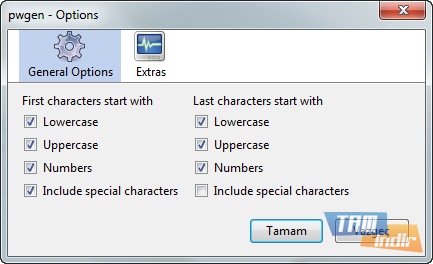

Compatible with the mobile phones and tablets There are several ways to pass arguments to pwgen to generate passwords, depending on what parameters you need.
Pwgen review code#
We analyse and optimize our add-ons code to make your store work as fast as possible. We understand that speed for an online store does matter. So you will not get in trouble upgrading your CS-Cart store to the next version. We do not make any changes in the engine's core to comply with the CS-Cart development standards. Anyone can check the code and see what is under the hood. The language variables of the add-on are edited right through the administration panel of the store, so you can add your translation easily. It takes 5 minutes to instal our products using the step-by-step instructions. We guarantee a fix for a reported bug within 20 business days. If you are not satisfied, please let us know, and we will refund your money no questions asked!

Pwgen review password#
But for most practical purposes, if you just be sure to generate things that are a few characters longer than you otherwise might, then your gain in strength from generating a longer password will surely overwhelm the loss of strength from their non-uniform behavior.You can test the add-on for 30 days. It is frustrating that popular password generators are hard to actually analyze in terms of strength. In today’s day and age of digital insecurity, it is imperative to have a secure password least your life be shattered. Due to the amount of password cracking techniques at the disposal of hackers, it is often hard to think of a secure password.
Pwgen review generator#
So between the relatively small modulo bias and the much larger deliberate bias toward more likely sounding syllables, it would require a level of analysis beyond what I am willing to do to actually calculate the min-entropy. PWGen is a password generator that allows you to generate random passwords and/or passphrases. It is a relatively small bias that comes up through a common design error when trying to pick a number between 1 and N even when the underlying random number generator is good. I have argued that we should be using min-entropy in such cases.Īdditionally, some versions of pwgen are subject to the modulo bias. There is no clear answer to what notion of entropy is most appropriate when password creation schemes when the schemes do not produce uniform output. A link to the video of the talk and the slides are here: Note I discuss this in my PasswordConLV15 talk. This is true of most "pronounceable" password generators. This is because it tries to mimic some of the frequencies we have in English. Some passwords are more likely than others. Pwgen does not produce passwords uniformly. The actual answer to your question is too hard for me to reasonably calculate, but I can say a few useful things about this. But it is far more than enough against automatized login scripts particularly if something (like a fail2ban) causes a hard, low limit to the possible tries. It means, that pwgen is probably quite sophistically tuned also for the high entropy, and not only to produce easily pronouncable passwords.ģ6 bit is not enough defense against gpu-accelerated, clustered brute force attacks. Typically, text data can be compressed to around 10% of its original size, while xz could reach only a 60% ratio. Note: although the output was a text file, xz could compress it only with a surprisingly bad ratio. Replayed measurements didn't show a significant dispersion.īased on this, the entropy of a single, 8 byte-long pwgen password is 8*8*593412/1048576 = 36.2 bits of entropy. Generates an 1MB long password, compresses it with the best known flags of the best known compressor, and measures the size of the output. The command pwgen 1048576|xz -9ve -|wc -c But I think we can use a strong compressor to approximate the entropy. An exact answer would require a deeper analyzis of the pwgen source code, or a more exact measurement.


 0 kommentar(er)
0 kommentar(er)
